The following is an example of word formation by verb to adjective conversion:
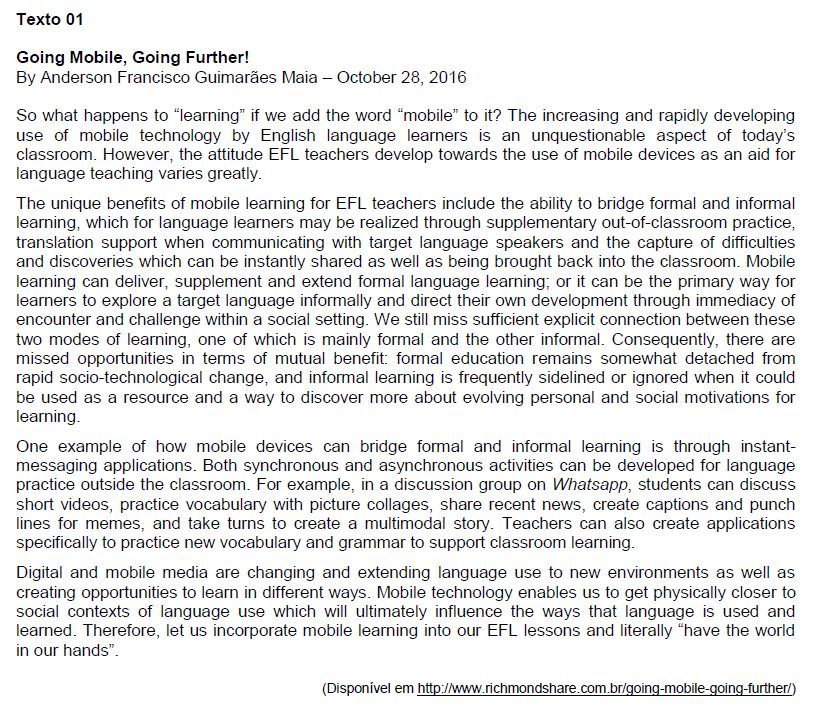
In “Helping my English as Second Language (L2) students gradually master English, I've seen my practical understanding of L2 learning grow, along with my respect for the major language task these students have taken on." (paragraph 2, line 2), the phrase these students refers to:
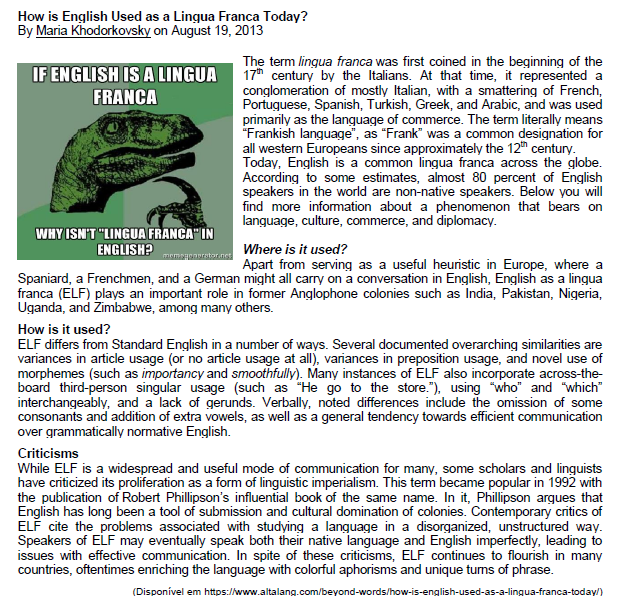
In “across-the-board third-person singular usage" (paragraph 3, line 3-4), the head noun is:
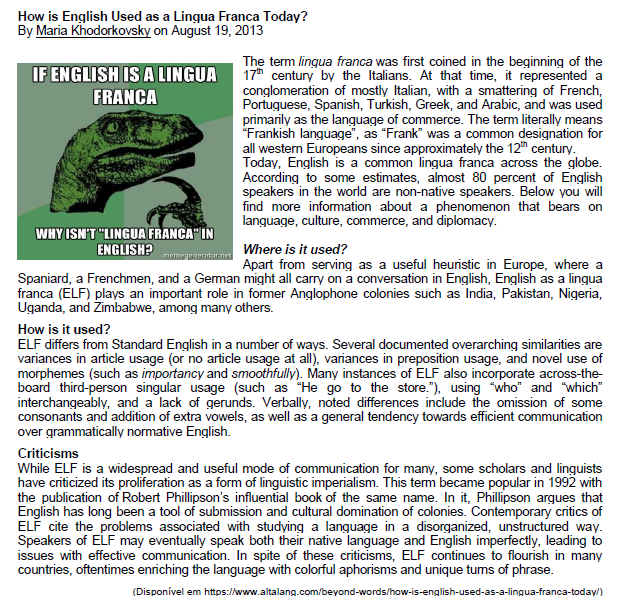
According to the excerpt, “ While ELF is a widespread and useful mode of communication for many, some scholars and linguists have criticized its proliferation as a form of linguistic imperialism. This term became popular in 1992 with the publication of Robert Phillipson's influential book of the same name." (paragraph 4, line 3), what is the name of Robert Phillipson's book?
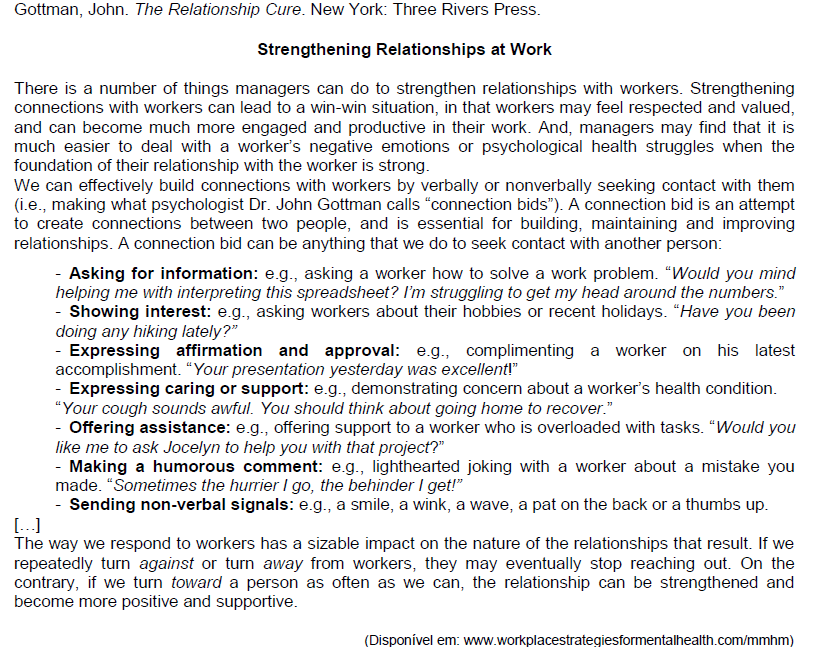
Non-verbal information can be useful to help read a text. The following is a type of non-verbal information found in text:
In the nominal group “The increasing and rapidly developing use of mobile technology by English language learners", the head noun is:
In “…what is the place of Standard English in teaching business communication in contexts that are more and more international?", the following is a nominal group:
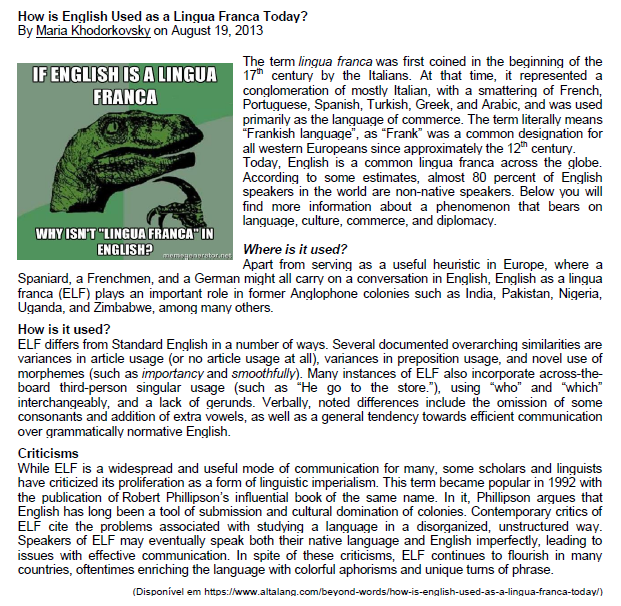
The main idea in paragraph 4 – entitled “Criticisms" – is:
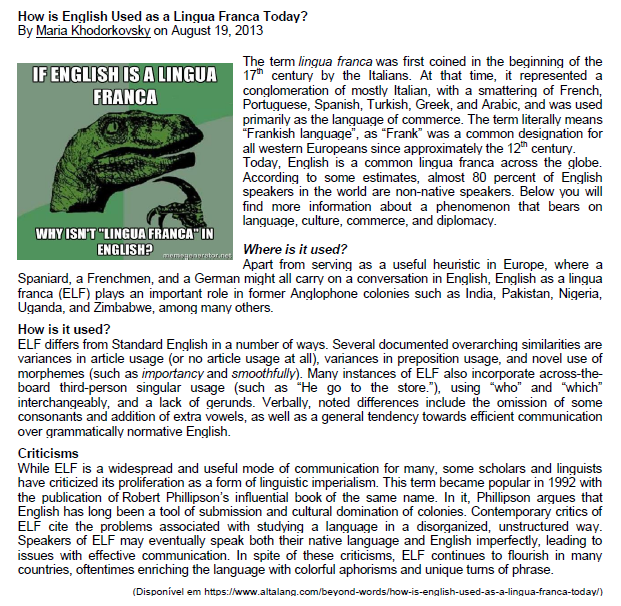
In terms of word formation, the words “oftentimes" and “colorful" are respectively examples of:
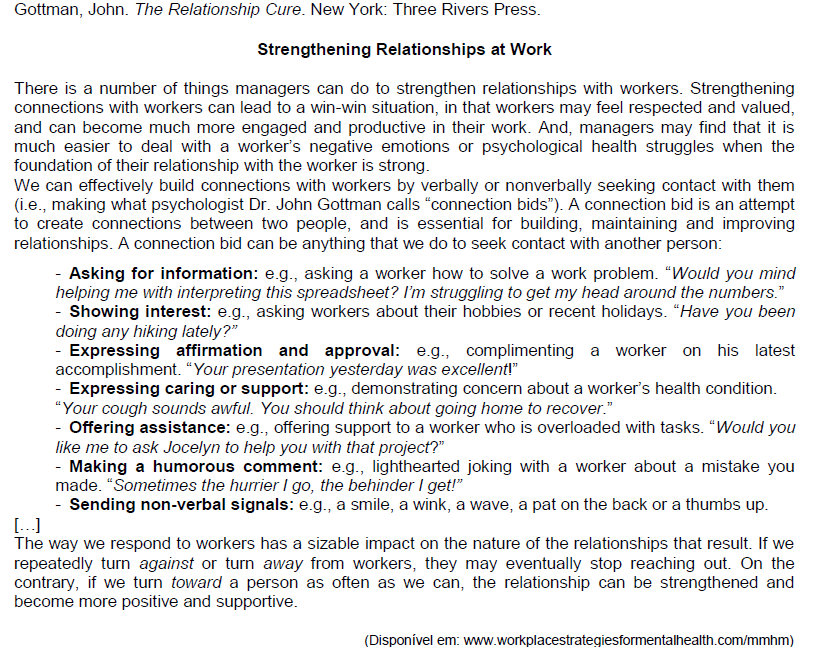
In “…complimenting a worker on his latest accomplishment...", the word his is an example of:

